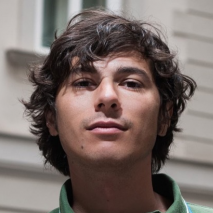


The COVID-19 pandemic has had diverse effects in developing countries. It has affected education programmes and capacity-building. It has heavily impacted women's lives, with side effects on their mental well-being. It also fostered cooperation among scientific and governmental bodies.
To address the recent COVID-19 emergency and help accelerate progress in the fight against the coronavirus, the Africa Centres for Disease Control and Prevention and the African Union, with the help of an organizing committee of international experts are hosting the inaugural Conference on Public Health in Africa (CPHIA), from 14 to 16 December. The event will become an annual conference. This year, it will take place in a virtual mode, to allow broad participation from anywhere. Registration is free.
As part of the Conference, and in parallel with other sessions, on 17 December*, The World Academy of Sciences (UNESCO-TWAS), the Organization for Women in Science for the Developing World (OWSD) and the InterAcademy Partnership (IAP) will address the "Impact on science and education in capacity-building in the developing world". The link to connect is here.
TWAS Programme Coordinator Max Paoli will share data and reflections about some aspects of the COVID-19 pandemic linked to the lack of infrastructures like electrical power and Internet connectivity, which pose a severe obstacle to the ability to engage directly in science and technology. Themes like the current digital divide between developing and developed countries, for example, and the importance of implementing communication between scientists and policymakers are also on the agenda.
OWSD Programme Coordinator Tonya Blowers will present two exemplary stories of women, who proved resilient in pursuing their scientific goals, despite the hardships they encountered. Blowers will also present the results and the follow-up to a survey of more than 1,400 OWSD Fellows from 58 countries, who described their experience at the time of COVID.
IAP Coordinator Peter McGrath will introduce the InterAcademy Partnership, which brings together nearly 150 academies of science, medicine and engineering, to provide independent expert advice on scientific, technological and health issues. McGrath will focus on the Network of African Science Academies (NASAC), a consortium of 28 merit-based academies in Africa, that aim to provide guidance to orient decision makers and policymakers within Africa and worldwide. He will also discuss a case study from the Mauritius Academy of Science and Technology.
UNESCO-TWAS, OWSD, IAP session will be chaired by UNESCO-TWAS Executive Director Romain Murenzi.
The Conference full programme is available at https://cphia2021.com/programme/.
*At 9–11 a.m., Est Africa Time; or 7–9 a.m., Rome time.
